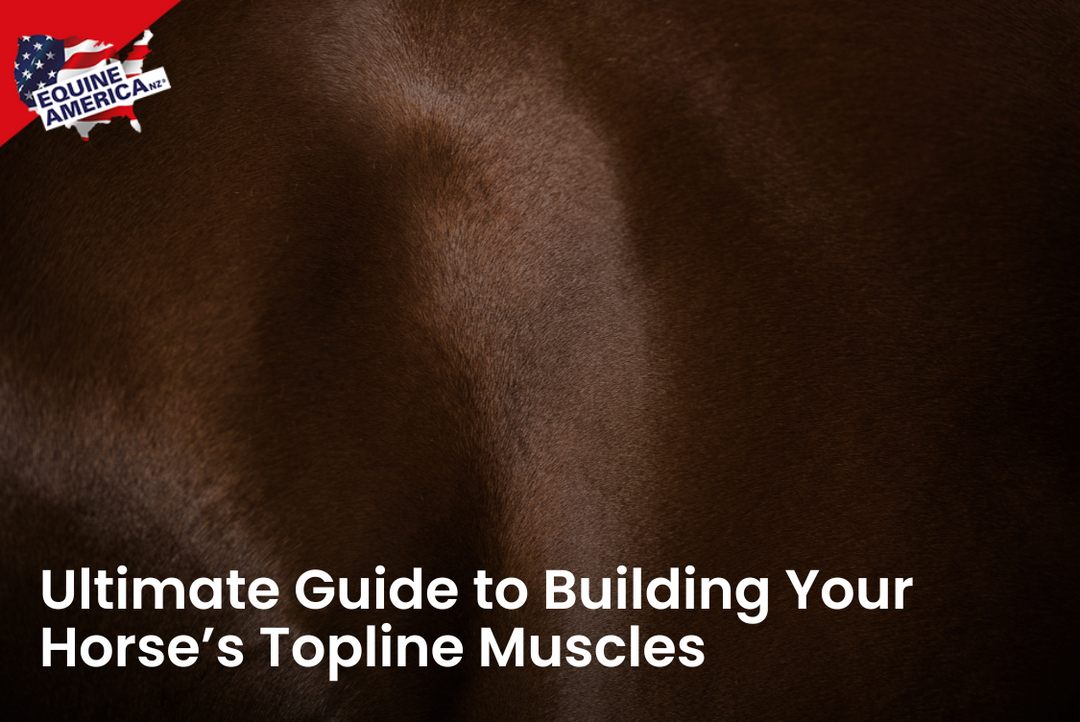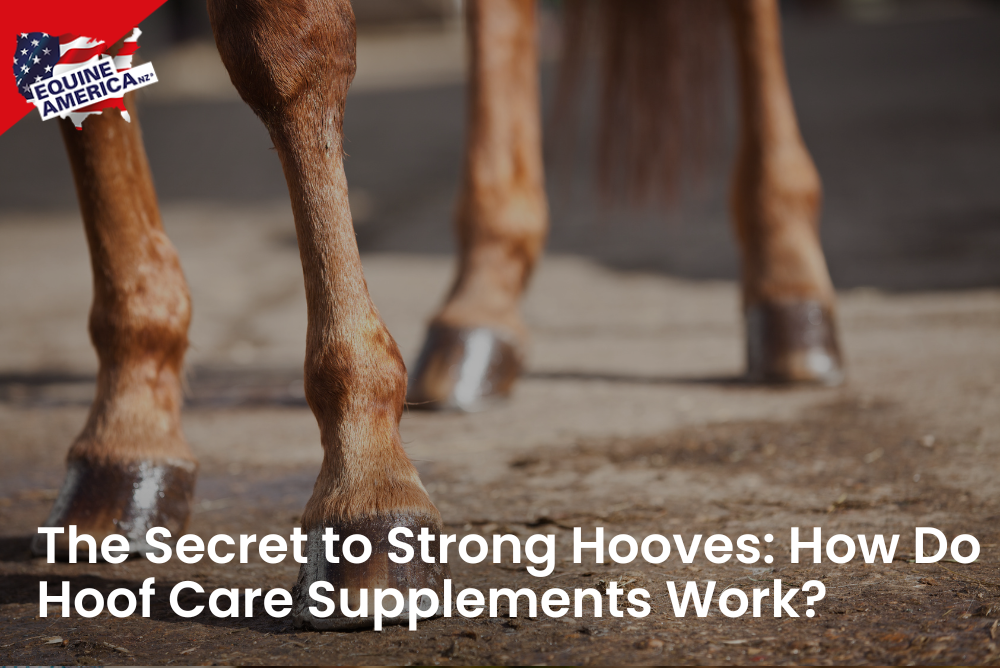You want to make sure that your horse is healthy and content as a horse owner. Supporting your horse's digestive system is one of the most important aspects of keeping them healthy. Similar to humans, horses can suffer from digestive problems that can cause annoyance, illness, and even more severe health issues.
The signs that your horse might need digestive support, the advantages of digestive supplements, and some advice for selecting the best digestive supplement for your horse are all covered in this article. You can help to keep your horse feeling their best by being aware of the significance of digestive support and taking proactive steps to support your horse's digestive health.
Signs Of Digestive Issues In Horses
One of the most common issues that horse owners face is digestive problems in their equine friends. As herbivores, horses are adapted to grazing constantly throughout the day, which keeps their digestive system healthy and functioning properly. However, changes in their diet or lifestyle can lead to digestive issues that can affect their overall health and wellbeing. In this section, we'll take a look at some common signs of digestive issues in horses.
- Colic: Colic is one of the most obvious signs of digestive problems in horses. It is a broad term that refers to any type of abdominal pain in horses, and can be caused by a variety of factors such as intestinal blockages, impactions, or twists. Horses with colic may show signs of discomfort, such as pawing at the ground, rolling excessively, sweating, and refusing to eat or drink.
- Diarrhoea: Diarrhoea can be a sign of a range of digestive problems, from minor issues such as a change in diet to more serious conditions such as colitis. Horses with diarrhoea may have loose, watery stools and may become dehydrated if the condition persists.
- Poor coat condition: The condition of a horse's coat can be an indication of their overall health. If a horse is experiencing digestive problems, they may not be getting the necessary nutrients from their diet to maintain a healthy coat. Horses with poor coat condition may have a dull, rough coat, or may lose hair in patches.
- Weight loss: Unexplained weight loss in horses can be a sign of digestive issues, particularly if their appetite has not changed. Horses with digestive problems may not be absorbing nutrients properly, leading to weight loss and a generally weaker appearance.
- Behavioural changes: Horses with digestive issues may exhibit changes in their behaviour, such as becoming irritable, lethargic, or showing a lack of interest in their surroundings. They may also have a reduced appetite or become reluctant to eat certain foods.
If you notice any of these signs in your horse, it is important to seek veterinary advice as soon as possible to diagnose and treat any underlying digestive issues.
Factors Affecting Digestive Health In Horses
The digestive system of horses is complex and delicate, and it can be affected by various factors. Here are some of the factors that can impact your horse's digestive health:
- Diet: Horses are designed to graze forage throughout the day. Feeding them large meals or feeding them grain-heavy diets can disrupt the natural balance of their digestive system.
- Water: Horses need access to clean, fresh water at all times. Inadequate water intake can lead to dehydration and colic.
- Exercise: Regular exercise can help stimulate the digestive system and prevent colic. A lack of exercise can lead to digestive issues.
- Stress: Horses are sensitive creatures and can easily get stressed. Stress can disrupt their digestive system and lead to colic and other health issues.
- Medications: Certain medications, such as antibiotics, can negatively affect the natural balance of bacteria in the horse's gut, leading to digestive issues.

Types Of Digestive Support For Horses
There are several types of digestive support products available for horses. Here are some of the most common types:
- Prebiotics: Prebiotics are non-digestible substances that promote the growth of beneficial bacteria in the gut. They essentially serve as food for the good bacteria and help them thrive. Examples of prebiotics include fructo-oligosaccharides (FOS), inulin, and mannan-oligosaccharides (MOS).
- Probiotics: Probiotics are live bacteria that are added to the horse's gut to help balance the bacterial population. These bacteria are thought to help improve digestion, boost the immune system, and prevent the growth of harmful bacteria. Examples of probiotics include Lactobacillus acidophilus, Bifidobacterium bifidum, and Enterococcus faecium.
- Enzymes: Enzymes are naturally occurring substances that help break down food in the digestive tract. They can be particularly helpful for horses that have difficulty digesting certain types of food, such as older horses or those with dental problems. Examples of enzymes used in digestive support products include amylase, protease, and cellulase.
- Antacids: Antacids are substances that help neutralise stomach acid. They are often used to treat ulcers and other digestive problems that are caused by excess acid. Examples of antacids used in equine digestive support products include calcium carbonate, magnesium oxide, and sodium bicarbonate.
- Herbal Supplements: Herbal supplements can be used to support the digestive system and promote overall digestive health. Common herbs used in equine digestive support products include chamomile, peppermint, ginger, and slippery elm.
It's important to note that these products are not all the same and some may work better for certain horses than others. It's always a good idea to consult with your veterinarian before adding any new supplement to your horse's diet.
Choosing The Right Digestive Support For Your Horse
When it comes to choosing the right digestive support for your horse, it's important to take several factors into consideration. First and foremost, it's crucial to identify the specific digestive issue that your horse is experiencing. This will help you determine which type of digestive support will be most effective in addressing the problem.
Another important consideration is the ingredients in the digestive support product. Look for products that contain high-quality ingredients, such as prebiotics, probiotics, and enzymes, that have been shown to support digestive health in horses. It's also a good idea to avoid products that contain fillers or artificial ingredients.
Finally, consider the form of the digestive support product. Some horses may prefer powders or pellets that can be added to their feed, while others may prefer a paste that can be administered directly. Choose a form that your horse is comfortable with and that will be easy for you to administer.
By taking these factors into consideration, you can choose the right digestive support product to help keep your horse's digestive system healthy and functioning properly.
Final Thoughts
Keeping your horse's digestive system healthy is crucial for their overall health and well-being. By being aware of the signs of digestive issues and taking steps to support their digestive health, you can help ensure your horse is happy and healthy.
Remember to consider all the factors that affect your horse's digestive health, from their diet and environment to their stress levels and exercise routine. And when choosing a digestive support product, be sure to do your research and consult with your veterinarian to find the best option for your horse's specific needs.
At Equine America NZ, we offer a range of high-quality digestive support products designed to meet the unique needs of horses. From probiotics to digestive enzymes, our products are formulated with the latest research and highest-quality ingredients to support your horse's digestive health. Contact us today to learn more about how our products can help your horse thrive.
Please give us a call at Equine America NZ today at 0800 440 888 to learn more or leave an enquiry.




